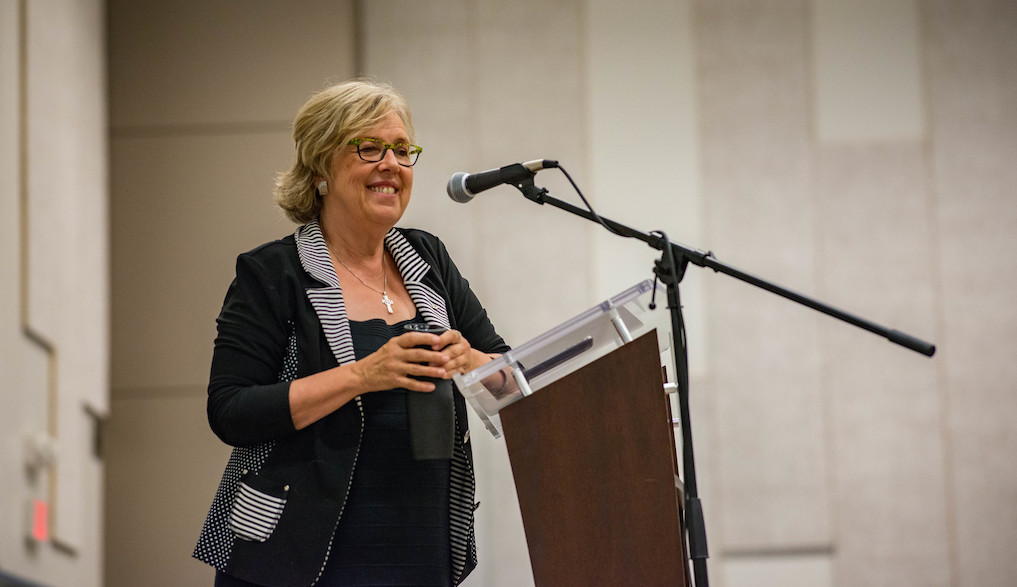We should consider this election a privilege. For the first time, the top issue in voters’ minds is the main threat not only to Canada but to organized human life: environmental crisis. How often does that happen? Never.
It’s not No. 1 by acclamation. It gets about a quarter of votes most of the time. Or hovers near the top. Nor does this mean the leaders, with one exception, will treat it centrally. That’s because they don’t really know what to do, even if they recognize the peril. They’d rather yammer about affordability or corruption. Yammeryammeryammer.
So this is a great moment because “the people” actually have the priorities right. It isn’t 2008 when Stéphane Dion ran quixotically on his Green Shift and got little response. Why is it different now? Because the concern isn’t based on an “overwhelming” scientific consensus or endless UN panel reports. People see it in their lives: vanishing coastlines, fiercer storms, melting glaciers, once-in-a-century weather that happens five times a year. Everyone in their fashion.
(My own trivial version is a retractable dock I acquired to prevent ice damage. It hangs in sanctuary over the lake, except when the ice arrives eight feet higher than ever due to — who knows: the polar ice cap melting? It’s not Bangladesh but that did focus my thinking.)
The clarity hasn’t come without complexity: A poll last week showed 70 per cent put climate change at the top but 58 per cent also back oil and gas development. Do they want to have their cake and eat it too? You bet, that’s what humans do. At Quebec separatism’s height, comic Yvon Deschamps said Quebecers want an independent Quebec in a strong and united Canada.
There’s no reason people shouldn’t try to have it both, or all ways. Maybe it can be done. Is it more “realistic” to tell people to choose between their family’s welfare and a burnt planet? Don’t just apply logic, listen to what they’re saying.
Green Leader Elizabeth May is in a unique position here. The Greens exist due to the climate crisis. (She’s also, IMO, the most prime ministerial leader.) She acknowledges the dichotomies and says her party would provide a five-year transition for people losing their jobs in the oil/energy sector. But. It seems to me she offers this in a tone that implies a basic income or welfare. “We” will provide it to you. This neglects the elements of identity and dignity that go with a job and it will be a hard or offensive sell to many people in those sectors.
In her campaign launch, May dug that hole deeper. She used an undeniably powerful image: she said when a fire breaks out, it’s up to the adults to get the kids out, then fight the fire. And if there are adults who don’t see how serious it is, she’s ready to toss them over her shoulder and save them too.
That’s a pretty undignified and demeaning image; also a messianic or salvational one. It’s a tad Christian, in the sense of having the gospel truth and imposing it on the faithless, saving them — not their souls but their bodies — from their own waywardness, whether they want it or not. (May is an ordained Anglican priest.)
But that’s a peccadillo compared to the substance of her call. The urgency is real. It’s somewhat like the 1930s when everyone with eyes could see what was coming. If anything the signs then — Anschluss, rearmament, the Nuremberg laws — were less blatant than they are now. There was still room to hope the abyss could be averted.
Appeasement wasn’t totally ridiculous or unthinkable, especially with the carnage of the First World War still near. It just turned out to be disastrously wrong and made the Second World War not only inevitable but worse: 70-85 million deaths, roughly double that of the previous war.
The signs of climate disaster today are even less subject to interpretation. May has used the Munich analogy and took a lot of stick for it but I consider it apt, even understated. She called it worse than appeasement then, and I think you can make that case. They had excuses, many of them poor; we have none.
Rick Salutin writes about current affairs and politics. This column was first published in the Toronto Star.



